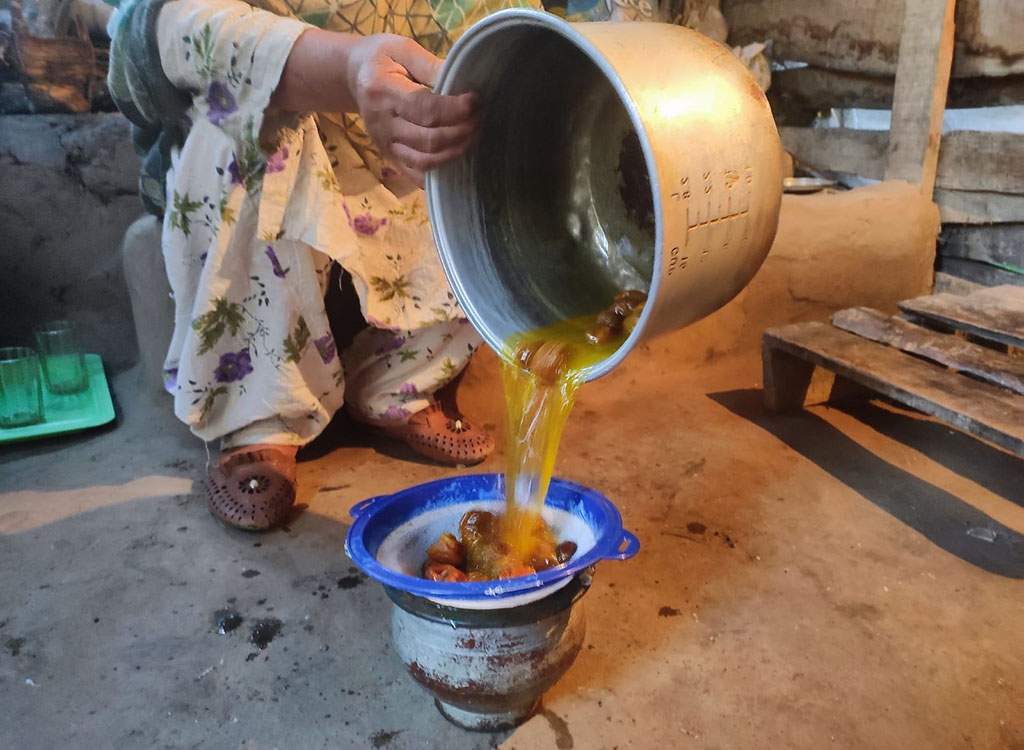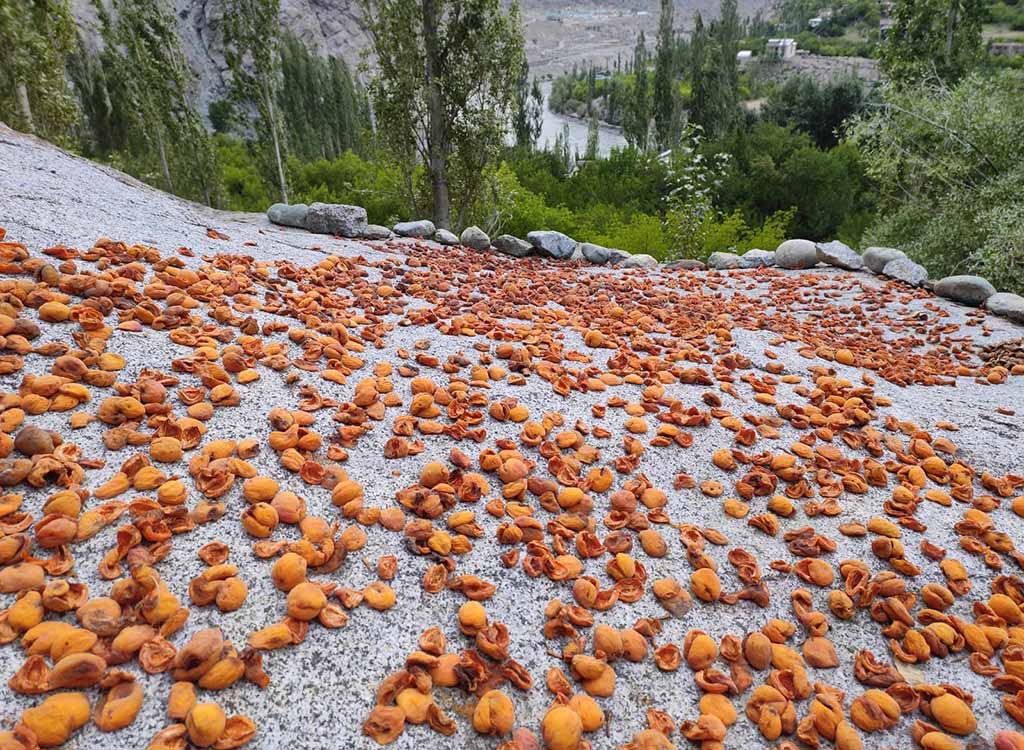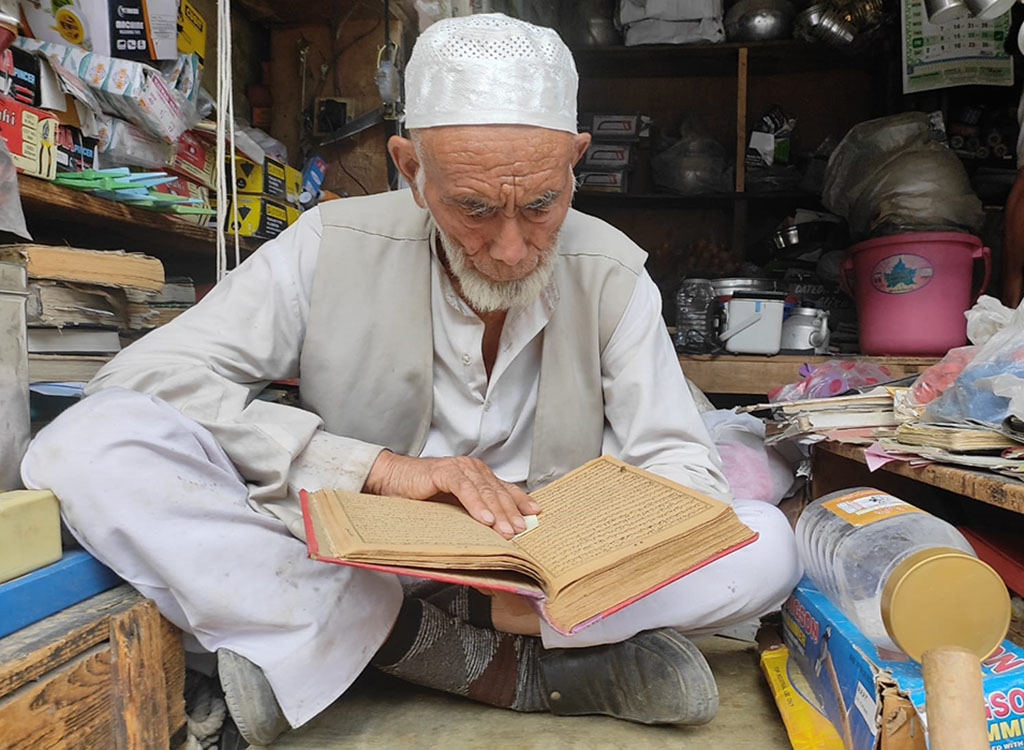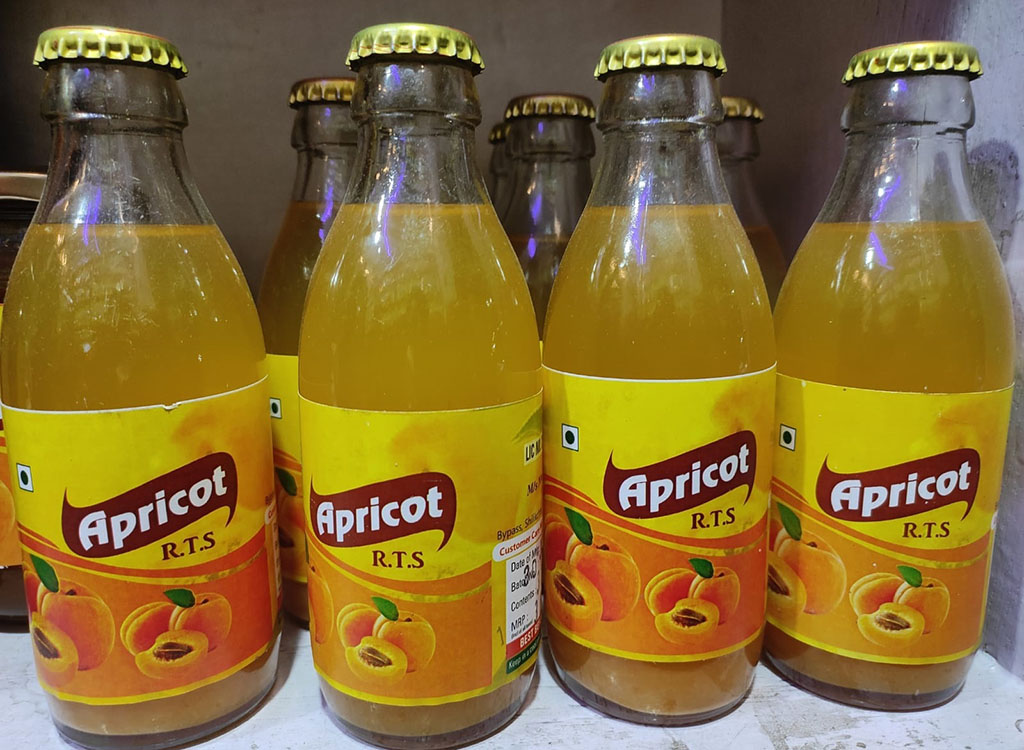
Kargil’s apricot “miracle drink” – phatxingu
People in Ladakh’s Kargil region believe phatxingu, a beverage made from apricots, is not just a drink that gives them a healthy, long life but is a “cure-all” for health problems too.

People in Ladakh’s Kargil region believe phatxingu, a beverage made from apricots, is not just a drink that gives them a healthy, long life but is a “cure-all” for health problems too.
As the mercury rises on a sunny day, an aged Ladakhi farmer hurries back to his house to quench his thirst. He fills a glass with an orange-yellow liquid from a small matka (earthen pot) and drinks it up to the last drop.
Haji Abdullah, the 65-year-old farmer from Hardass, a riverside village on the outskirts of Kargil town, is a heavy drinker of this sherbet made locally from apricots. The apricot drink, phatxingu in local parlance, is a popular beverage believed to have miraculous effects on people’s health.
A handful of dried sweet apricots is boiled in a specific quantity of water until the fruit separates from the stone and the liquid turns orangish-yellow. It is then poured through a seive into an earthen pot, where it can be stored for days together in a cooler part of the house.

“I’ve been drinking this sherbet since my childhood. My forefathers used to drink it. It has many benefits. At my age, I’ve never had joint pain or indigestion. It’s all because of this sour and sweet drink,” said Abdullah, while drinking the sherbet. “Whenever I feel tired, a glass of it is enough to make me feel fresh.”
From indigestion to urinary infections and loss of appetite, this apricot drink from the cold desert of Kargil is traditionally believed to be the panacea for any health disorder.
Forget the apple-a-day-keeps-the-doctor-away adage here. For the people in this region it is a daily apricot that keeps one from needing a doctor.
But that’s not all.

Interestingly, the villages of Hardass and Shilakchay, a major apricot-producing area in Kargil, have a fair population of elders. Many people attribute the longer life span and good health to this locally made drink too.
“Our village has a good number of people who have crossed the age of 60 years. There are even many people from my village who are in their eighties and nineties. My grandfather who is about 90 keeps in good health. All these villagers take phatxingu,” Mustafa Ahmad of Hardass told Village Square.
Shilakchay resident, 85-year-old Mohammad Hussain Thangcho, still runs his shop in Kargil town. Beating his age, he leaves for Kargil in the morning and returns in the evening after working in the shop the whole day.
“Thank God, my father keeps good health at this age. I think besides his hard work, one of the reasons could be the apricot drink, which he seldom misses,” said his son, Qasim Hussain, who also works with his father in their shop.
Seventy-two-year-old Haji Ghulam Mohammad of Hundarman, a picturesque border village in the outskirts of Kargil, uses phatxingu for his acid-reflux problems.

“Whenever I have acidity, I simply drink a glass of this apricot drink. It provides a definite relief within hours,” Mohammad told Village Square.
Women from these apricot-producing pockets of Kargil also faithfully drink this local beverage.
“Few years back, I suffered from a severe urinary infection. After taking this apricot drink regularly in the morning for almost a month, I was cured of the infection,” said Haji Maryam, a 70-year-old woman from Hardass.
While the elders in the cold desert of Kargil find the special apricot drink beneficial to fight many diseases and disorders, the younger generation believes that the drink is an instant energy booster. Mohammad Irfan, a class XII student from Hardas said that this drink often elevates his mood.

Though most of the Kargilites drink phatxingu to keep healthy and avoid disorders, health experts believe that the practice has its roots in the society’s belief and culture.
According to Mohammad Ishaq, a renowned physician from Kargil, though apricots have many health benefits and drinking phatxingu is a centuries-old tradition, the healing effects associated with the drink are subject to research.
Most people prefer the sweet-tasting drink chilled. It is often consumed on its own, but many also like to have it with papha, a barley bread.
As Kargil has a dominant Muslim population in Ladakh, they consume the apricot drink heavily during Ramadan, the month of fasting in Islamic calendar.

As the consumption of phatxingu increases manifold during Ramadan, the price of dried sweet apricots also goes up. Mohammad Abbas, a shopkeeper dealing in dry fruit from Kargil says that the price usually goes Rs 100-150 costlier in Ramadan.
There is a common belief that drinking phatxingu in the early morning satiates one’s thirst for water the whole day.
“People usually drink a glass of phatxingu during the pre-dawn meal and you don’t feel thirsty again during the rest of the day. Such is an effect of this apricot drink,” said Zainab Khatoon, a health department worker.
The lead image shows phatxingu, the apricot drink, stored in an earthen pot and served in glasses (Photo by Nasir Yousufi)
Nasir Yousufi is a journalist based at Srinagar.